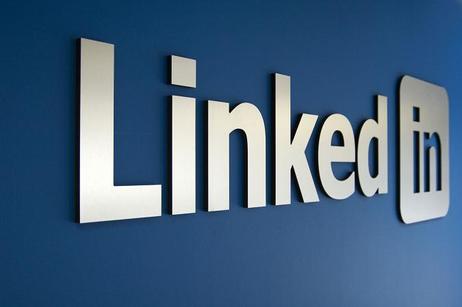Many high school students document their school years on social networks like Facebook, where they fill pages with funny photos and funnier comments regarding their teen antics. However, some experts are now recommending that high school students take a more serious approach to their social networking, by hooking up with the professional network LinkedIn. Why should fun-loving high schoolers take a second look at a stuffed-shirt site like LinkedIn? It turns out there are many potential benefits from tuning into this established network at a younger age.
Job Searching Early
Even teens need to get a leg up on their job searches, whether they are on the hunt for a career right out of high school or a part-time job to help them pay the college bills. Globe and Mail recently reported that the days of the paper CV are out – now it’s all about selling yourself to prospective employers through digital mediums. Employers are now looking up applicants online, through social media, and even a personal website. Some employers even discount an applicant who restricts their resume or application to the paper variety, according to Jaigris Hodson, an instructor of digital literacy at Ryerson University.
This video offers a tutorial on LinkedIn for students.
“I advise my students to build an online portfolio that demonstrates the abilities they have to help employers solve their problems and portrays them as sources of knowledge in their field,” Hodson told Globe and Mail.
While that may sound good for the future college graduate, what about those seeking part-time employment during or after the high school years? Maria Stein, Director of Career Services at Northeastern University, told Forbes recently that high school students with a LinkedIn account show future employers they are several steps ahead and serious about landing a good job. She explained that most employers today run job applicants through a Google search as a standard part of the hiring process. If a young applicant shows up on LinkedIn, it indicates that the student is “forward-thinking.”
The College App
Even students applying for college may get a boost with a LinkedIn account. The Forbes article reported on anecdotal evidence indicating some college admission offices may also use Google as a part of the process, although schools don’t tend to admit to such practices on record. However, one college dean, Jess Lord, admits that if a student applicant has a LinkedIn account, it could very well make a college admissions board take a second look at that student. At the very least, it suggests the student is serious about his future and his career prospects.
This video from CNET shows how LinkedIn can benefit students.
Experts also advise students that it is never too soon to start making the connections that will take them forward in the future. You never know when a former teacher or camp counselor will know the right person to help you land the perfect job in your chosen field. Maintaining those connections is much easier when they are kept through social networking. For those making a list of connections for professional purposes, LinkedIn is the place to be.
Algorithms and Analytics
According to the University of Pennsylvania website Knowledge Today, algorithmic hiring is the latest buzzword among employers across a wide range of industries. This style of hiring using big-data analytics found through online searches to uncover hidden talent, rather than relying on the traditional accolades seen on most resumes. One of those analytics includes the qualifications and experience often listed on LinkedIn. While high school students may have heard that it’s never too early to begin building a resume, perhaps a more accurate mantra might be, “It’s never too early to begin building a resume through social networks.”
This video discusses the use of data analytics by employers.
Employers are discovering the traditional hiring markers may not be the most accurate for identifying the employees with the most promise. However, when Internet data is collected and compared to the traditional job histories and academic degrees, the odds of matching talent to a position increase. In addition, the ability to build an online “resume” shows prospective employers that the candidate is social media savvy, a trait that is becoming increasingly attractive for businesses across the globe.
Using LinkedIn to Your Advantage
One reason high school students may not be anxious to delve into this professional social media is the age restriction, which is currently listed at 18. However, Forbes reports that the website does not require an age or birth date when one creates a profile, which allows many teens to join the network without worry over age restriction. In addition, some social media experts predict that the age requirement may be in for a change soon, as teenagers realize the value of the network and clamor for a profile.
Once you have made the decision to join LinkedIn, begin with a customized URL, rather than allowing the website to assign one to you. It may be difficult to create a unique public profile URL with more than 200 million users now on the website. However, the work to tweak your relatively common name will pay off in the search engines, when employers and others can easily find your LinkedIn page by simply searching your name. The sooner you choose your public profile URL, the better off you will be.
After you have successfully plugged into the LinkedIn network, use it to your advantage. Make connections with adults you know, in addition to your fellow teens. Adults may be in a better position to connect you with others who can get you employed or into the college of your choice. By establishing your professional network early, you can prepare for your career long before high school graduation rolls around.
Questions? Contact us on Facebook. @publicschoolreview














